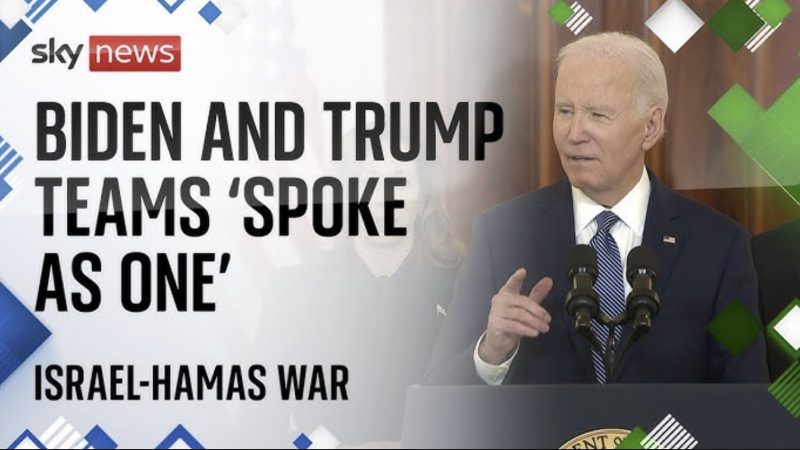Kalshi adds Trump, Harris election betting options

The Commodity Futures Trading Commission headquarters in Washington, D.C.
Ting Shen | Bloomberg | Getty Images
Contract market KalshiEx has listed more than two dozen new options in recent days for the exchange’s customers to bet on political outcomes, including the presidential race, the popular vote and Electoral College margins of that race, and individual Senate contests.
The new contracts were added to Kalshi’s platform within days of a favorable federal appeals court ruling for the company Oct 2. The ruling lifted a temporary injunction that had blocked Kalshi from offering contracts on which political parties would control each chamber of Congress after the November elections.
A day later, Kalshi offered a contract for customers to bet on the winner of the presidential election, and potentially hedging any losses a customer might incur.
As of Wednesday, more than $3 million had been wagered in political contracts on Kalshi’s site, the lion’s share of which was on contracts of whether Vice President Kamala Harris or former President Donald Trump would win the presidential election.
Other contracts available for betting Wednesday included the outcomes of individual Senate races, which state would be the tipping point in the presidential election, which presidential candidates would win individual swing states, and the margin of victory in the race for the White House.

“It’s been great, there’s been a tremendous demand, ” Kalshi CEO Tarek Mansour said in an interview, about the response to the exchange’s new political contract options.
Adding those options “was always the plan,” said Mansour, as the company fought a ban on these types of contracts enacted by the Commodity Futures Trading Commission.
For Mansour, the betting contracts for political outcomes represent a way for investors to hedge against the broader financial impacts of one political outcome over another — not a means to influence the elections themselves.
“Each of these markets capture different risks,” he said. A president imposing tariffs, for example, could affect a customer’s financial situation.
He said Kalshi’s political outcome contracts are a more direct way to hedge such risks than the “bundles” of trades that investment banks offer, designed to give customers a hedge against the election of a certain presidential candidate.
“We have a healthy mix of both” customers looking to hedge financial risks and speculators, he said.
“Everything Kalshi is doing is within the law and regulated,” Mansour said, noting that the exchange has to keep records about its customers that are available to the federal government.
“We believe the law is on our side,” he said.
The CFTC disagrees.
Kalshi has “gone full throttle on election betting,” the CFTC said in a filing Tuesday with the U.S. Court of Appeals for the District of Columbia Circuit.
Even more political races could soon become available for betting with Kalshi contracts, the CFTC said, citing contract terms published on the exchange’s web site. Among them are the 435 individual House races and more state-level gubernatorial races.
“Some of these blatantly contradict Kalshi’s own arguments at the Court’s recent hearing — that its contracts are not gaming, because they are based on economically significant events,” the CFTC said in its filing.
“This cannot be said of a contract betting on whether a particular state will have the closest popular vote margin, or a contract on the winner of the popular vote, to name two.”
The CFTC’s filing supported a prior request by the regulator that the appeals court expedite the agency’s appeal of a lower-court ruling that allowed Kalshi to accept bets on the outcomes of political races.
A CFTC spokesman declined to comment to CNBC about the case. But the commission argues that Kalshi’s contracts might cast doubt on the integrity of elections.
A federal district court judge in Washington, D.C., ruled last month that the CFTC’s ban on Kalshi’s congressional contracts was not valid, because the regulator had erred in finding that the contracts involved gaming or gambling.
The appeals court initially blocked that judge’s ruling from taking effect, which meant Kalshi could not offer any political contracts.
But in last week’s ruling, a three-judge panel of the appeals court lifted the original ban, saying the CFTC “has failed at this time to demonstrate that it or the public will be irreparably injured” if the contracts were offered while the agency continued its appeal of the judge’s decision.
Appeals Court Judge Patricia Millett noted in the ruling that “the question on the merits” of the CFTC’s appeal is “close and difficult,” giving the regulator a reason to hope that its ban on political contracts will eventually be reimposed.
Another key issue for both Kalshi and CFTC is the timing of any court action.
The CFTC asked for an expedited briefing Tuesday, saying, “The public has an unusual interest in the prompt resolution of the merits of this case.”
That is because “the Court’s holding has implications for the regulatory landscape for event contracts, the role that a federal agency will play in policing election markets, and indeed issues of election integrity and the perception of election integrity,” the regulator said in the filing.
Mansour, the Kalshi CEO, said there is “zero evidence” that political contracts “compromise election integrity.”
Mansour said that any effort by a customer to sway the market’s effective prediction of a certain outcome, by wagering on a certain candidate, would cost a large amount of money.
And even if it worked in the short run, other customers would bet against that outcome once they saw that the market was mis-pricing the likelihood of that election result, he said.
Read the original article here






